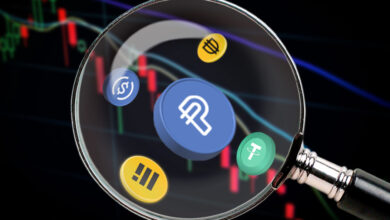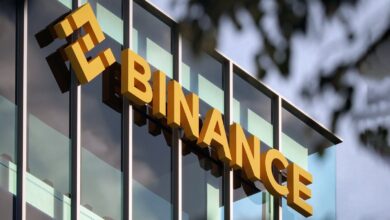IBM Launches Food Blockchain

After 1,5 year of testing, IBM launches its food traceability platform based on the blockchain. The project is now live – ready for global usage for retailers, suppliers and wholesalers.
The IT mogul develops blockchain technology in many varieties. One of them is a food-tracking platform. First, Wallmart (one of the largest food retailers) tested IBM new tech to keep track of every bag of spinach and a head of lettuce. On Monday, the computer giant launched its Food Trust.
A collaboration of the biggest
IBM announced that its solution is now available for every player in the food industry. Carrefour – European supermarket tycoon, Nestle, Wallmart, Tyson Foods, Kroger and many others have already joined the project.
IBM claims that the new app is created for the largest companies of food industry, as well as medium and small-size firms. Everybody can join a supply chain network for a subscription cost from $100 to $10,000 per month. The price difference is connected with the size of a firm. Small business (< $50 M annual income) can purchase Food Trust for $100 monthly, large enterprises ($1B+ income) have to pay $10,000.
Blockchain can make the world a better place
There is a lot of evidence of using blockchain technology in a good cause. IBM’s development could be another one. For instance, Estonia created an X-road, a system based on the blockchain. The service, called E-stonia, provides online voting, banking, tax returns, and many others.
A collaborative approach can make new paths for network-based businesses of the future. Bridget van Kralingen,Senior Vice President Blockchain, Industry Platforms, Global Industries, IAs and Partnerships, said that companies need to share the responsibility to trust each other. She added:
“That collaborative approach is how the members of IBM Food Trust have shown blockchain can strengthen transparency and drive meaningful enhancements to food traceability. Ultimately, that provides business benefits for participants and a better and safer product for consumers.”
How it is supposed to work
The service is based on the cloud. The main task for the platform is to raise visibility and veracity in a global sourcing of fresh products. The network was built with Hyperledger Fabric blockchain protocol.
The chain of supply can be traced forward and backward. It can help to truck any food that may go bad. For example, if fruit for pregnant women get rotten or contaminated, the app can track them down and precisely identify the supplier. Also, it would help to take down other affected products from market.
In 18 months of testing, platform processed 3 million transactions. Right now, when Food Trust is live, “it can be ten times faster”, according to IBM.
Competition never sleeps
IBM became a leader in tracking food initiative. Food trust is the company’s one of the most crucial blockchain projects. However, there are many other companies, which develop similar applications.
One of them is Intel. This IT giant develops Sawtooth, the codebase on Hyperledger. Not much information is given, though. In July, there were reports on Cargill, U.S. food potentate using codes from Intel to trace the project. The company refused to comment on these rumors.
Even Carrefour worked on its own blockchain for several months. Their focus was on verification of the improvement of free-range chicken production.
Nevertheless, it seems that IBM is a few steps ahead of everybody right now. According to a new report, the blockchain in agriculture and food supply chains will be worth over $400 million in the next 5 years.





